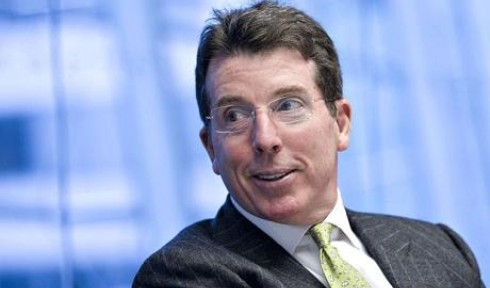Their focus was a call to action for the Government to take the lead in showing that Britain was genuinely ‘open for business’ through a reversal of the regulatory culture which now dominated the economic landscape in the UK together with an easing of taxes to encourage entrepreneurs to base their businesses in the UK.
Bob Diamond, the somewhat controversial CEO of Barclays revealed that his bank hold in excess of £16 billion in deposits on behalf of small and medium sized businesses in the UK. He emphasised that these were successful companies that were making very conscious decisions to adopt very defensive positions.
They were not hiring and they were not spending because of the uncertainty they face in the current climate. If the economic recovery is to be lead by growth and new jobs in the private sector, this trend needed to be reversed quickly.
Meanwhile Willy Walsh, CEO of the International Airline Group, the parent company of British Airways, outlined how his company’s focus is now on expansion abroad due to ‘difficult and complex’ labour laws which made small businesses fearful of taking hiring decisions. He also cited the ‘air passenger duty’ as the single largest aviation tax in the world which was leading to both passengers and carriers to exercise their choice to go elsewhere.
Sam Laidlaw, CEO of Centrica cited wavering and unclear thinking on the country’s energy policy, a debate which meandered throughout the Blair/Brown era of Government and continues today, as a major influencing factor in the lack of investment in the energy sector in the UK.
Coupled with recent tax increases on the North Sea oil industry, unreformed planning rules and ‘combative and intrusive’ regulation which focuses on what organisations cannot do rather than being collaborative, led to a situation where the private sector was simply not prepared to take the risk of investment and job creation at present.
And so the theme went on. The leadership of Britain’s biggest and strongest businesses went on issuing a potent message to the Government; show some leadership, create an environment where businesses both large and small can act in confidence to lead the country back to a position of economic prosperity.
The favoured options were a reduction in taxes on business, especially those which picked out specific industries such as aviation, energy and banking for special treatment because the response is in those industries is simply to take their cash and jobs elsewhere.
Secondly address the issue of over intrusive and creeping regulation. The field of employment legislation is the perfect example where the past decade has seen a never ending stream of change which companies large and small have had to adapt to.
Hot on the heels of new anti age discrimination legislation and measures to equalise pay scales between genders, employers are currently gearing themselves up to implement later this year the Agency Workers Directive, a piece of legislation so complicated in its structure and format that even Government sponsored bodies are admitting that only case law will be able to establish what certain paragraphs and descriptions actually mean.
And then in 2012 comes major changes to the way pension contributions are administered by employers.
News in recent days of the failures of both Habitat, arguable one of the UK’s most iconic high street brands over the last 30 years as well as Moben Kitchens and Bathrooms should help to remind us all that we are not over this hill just yet.
So the message is a simple one. British business is ready and able to take up the challenge of job creation and economic stimulation but its willingness to do so still needs to be nurtured. It’s not a case of you jump first Mr Cameron and we will follow but rather, let’s make a leap of faith together.
Norman Burden is Chief Executive Officer of True North Human Capital, the Human Capital Management Consultancy.


